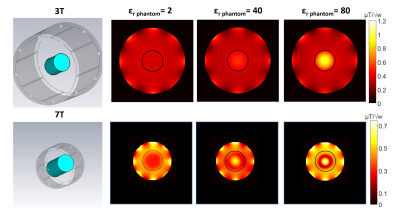Joint Annual Meeting ISMRM-ESMRMB • 16-21 June 2018 • Paris, France

| Weekend Educational Course RF Engineering: Coils |
||||||||||||||
|
RF Engineering: Coils: Part 3
Weekend Course ORGANIZERS: Gregor Adriany, Christoph Juchem, Mary McDougall, Greig Scott
Sunday, 17 June 2018
Skill Level: Intermediate
Session Number: WE-13C
Overview Attendees will receive relevant session and talk recommendations from speakers. In this one-day course, the principles of RF coils used to detect and excite the MR signals will be discussed, beginning with the transmission lines that interconnect the coils to the MR system and extending to single-surface and volume coils and finally RF coil arrays for both transmit and receive. A discussion of the RF modeling tools used to analyze these coils and coil arrays and their interaction with the patient and the environment will lead into the interaction of RF fields with other objects in the MR environment. Target Audience This course is designed for MR technicians, scientists and engineers with an interest in understanding physical principles behind MR safety issues related to RF fields, and/or the construction, design or use of RF coils and RF coil arrays. Educational Objectives As a result of attending this course, participants should be able to: -Describe the basic theory, design and construction of single and multi-tuned RF coils and their feed networks; -Illustrate the principles of operation and basic applications of receive and transmit RF coil arrays; and -Compare and contrast the major methods of RF modeling commonly in use and the relative advantages and disadvantages of each.
|
||||||||||||||
|
RF Engineering: Coils: Part 4
Weekend Course ORGANIZERS: Gregor Adriany, Christoph Juchem, Mary McDougall, Greig Scott
Sunday, 17 June 2018
Skill Level: Intermediate
Session Number: WE-13D
Overview Attendees will receive relevant session and talk recommendations from speakers. In this one-day course, the principles of RF coils used to detect and excite the MR signals will be discussed, beginning with the transmission lines that interconnect the coils to the MR system and extending to single-surface and volume coils and finally RF coil arrays for both transmit and receive. A discussion of the RF modeling tools used to analyze these coils and coil arrays and their interaction with the patient and the environment will lead into the interaction of RF fields with other objects in the MR environment. Target Audience This course is designed for MR technicians, scientists and engineers with an interest in understanding physical principles behind MR safety issues related to RF fields, and/or the construction, design or use of RF coils and RF coil arrays. Educational Objectives As a result of attending this course, participants should be able to: -Describe the basic theory, design and construction of single and multi-tuned RF coils and their feed networks; -Illustrate the principles of operation and basic applications of receive and transmit RF coil arrays; and -Compare and contrast the major methods of RF modeling commonly in use and the relative advantages and disadvantages of each.
|
||||||||||||||
| Back | ||||||||||||||
| The International Society for Magnetic Resonance in Medicine is accredited by the Accreditation Council for Continuing Medical Education to provide continuing medical education for physicians. |

